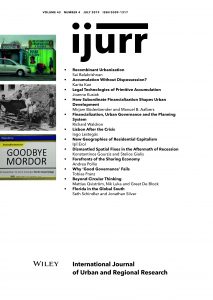By critically reviewing different strands of literature on institutional change and development, this essay argues that, in order to fully understand subnational economic development, we need to move away from ‘good governance’ explanations in which geography‐specific analyses of power structures and elite interests are largely absent. Using findings for Colombia and insights from economic geography and heterodox political economy theories, this essay gives theoretical and conceptual guidelines and approximations for future studies on regional economic development. The contribution provides a place‐based discussion of how the historically evolved distribution of power balances, context‐specific elite interests, and the interaction between place‐bound actors and place‐less dynamics affect subnational institutional arrangements shaping policies and development outcomes. The conclusions drawn are not limited to Colombia and will prove beneficial to researchers studying regional economic development in subnational contexts elsewhere in the world.

